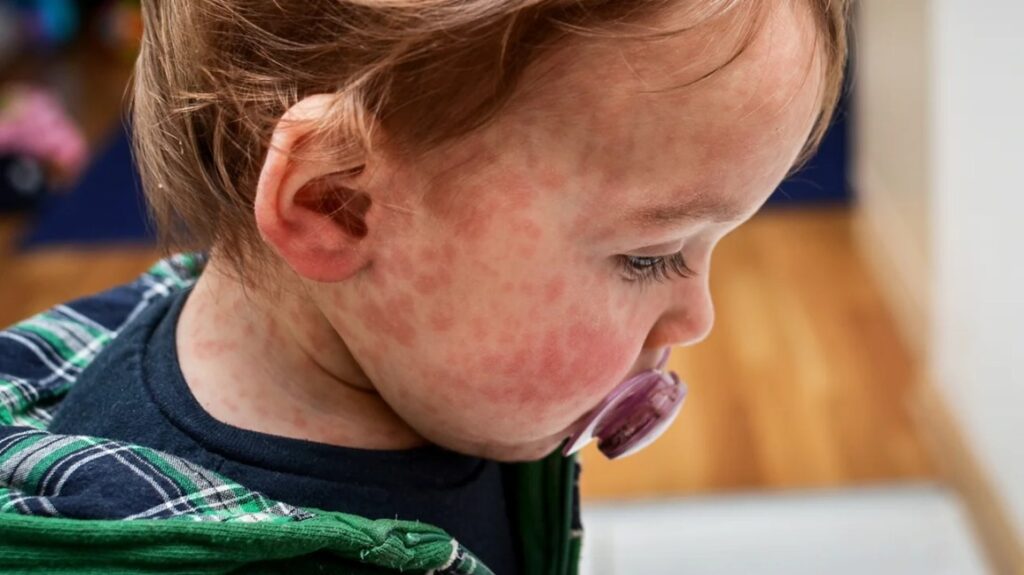Allergies are increasingly common in children, and many parents wonder why their baby has developed an allergy. While environmental factors like exposure to allergens play a role, genetics is a significant contributing factor as well. Understanding the connection between genetics and baby allergies can help parents make informed decisions and seek the best preventative measures. In this article, we will delve into how genetics influences the development of allergies in babies, how parents can assess the risks, and what they can do to manage or prevent allergic reactions.
The Genetic Basis of Allergies
Genetics refers to the inherited traits passed down from parents to their children. These traits are determined by genes, which carry the instructions for the development and function of the body. In the case of allergies, genes influence the way the immune system responds to foreign substances, also known as allergens.
Babies are born with an immune system that is still developing, and their immune responses may differ from those of adults. Genetics can play a critical role in determining how sensitive a baby’s immune system is to certain substances. If one or both parents have allergies, the baby may be more likely to develop allergies as well.
How Inherited Allergies Affect Babies
Allergic reactions occur when the immune system mistakenly identifies a harmless substance—like pollen, dust, or certain foods—as a threat. The body then produces an antibody called immunoglobulin E (IgE), which triggers the release of histamines and other chemicals, leading to common allergic symptoms like itching, swelling, and rashes.
Genetics can influence how the immune system responds to allergens in several ways:
Family History of Allergies
If one or both parents have allergies, the likelihood of their baby developing an allergy increases. This is because allergies are often inherited in a polygenic manner, meaning multiple genes from both parents contribute to the condition. For example, if one parent has asthma, the other has hay fever, the baby may inherit a combination of genes that increase their chances of developing asthma, eczema, or food allergies.
Atopic Conditions and the Atopic March
Babies with a family history of allergies may be more likely to develop atopic conditions, which are allergic diseases like asthma, eczema, and hay fever. The “atopic march” refers to the common progression of these conditions from early childhood into later life. Babies with eczema may later develop food allergies, and those with food allergies may later develop asthma. Genetics plays a key role in determining whether a child will follow this progression.
Gene Variations
Specific gene variations can predispose a baby to allergic reactions. Research has shown that certain genes affect the way the immune system responds to allergens. For instance, variations in the gene that controls the production of IgE antibodies can increase the likelihood of developing allergic conditions. Additionally, mutations in the filaggrin gene, which plays a role in maintaining the skin barrier, have been linked to eczema and other allergic conditions.
Environmental Factors and Their Interaction with Genetics
While genetics play a significant role in the development of allergies, environmental factors also influence the immune system. This combination of genetic predisposition and environmental exposure is known as the “gene-environment interaction.”
Early Exposure to Allergens
Babies who are genetically predisposed to allergies may develop them more readily when they are exposed to allergens early in life. For instance, a baby with a family history of asthma may be more likely to develop asthma if exposed to second-hand smoke or air pollution. The timing and amount of exposure to allergens can influence the onset of allergic conditions.
Hygiene Hypothesis
The hygiene hypothesis suggests that children living in more sanitized environments, with fewer infections and exposures to bacteria, may have a higher risk of developing allergies. This is because their immune systems may not be sufficiently trained to recognize harmless substances and thus overreact when encountering allergens. The theory proposes that the immune system needs early exposure to germs to function properly, reducing the risk of allergies.
Dietary Influence
Diet also plays an essential role in the development of allergies. For instance, early introduction to certain foods can either increase or decrease the likelihood of developing food allergies. Studies show that children with a genetic predisposition to allergies are more likely to develop food allergies if they are introduced to allergenic foods later than recommended. Conversely, early introduction of peanuts and other allergenic foods may reduce the risk of developing food allergies.
Identifying the Risk Factors for Baby Allergies
The role of genetics in baby allergies means that parents can assess the risk of their child developing allergies by considering several factors, such as:
Family History of Allergies
A strong family history of allergies increases the risk of a baby developing allergies. If both parents have allergies, the risk is even higher. In such cases, parents should take extra precautions to reduce environmental exposures that may trigger allergies.
Parental Health Conditions
Allergies are more common among people with certain health conditions. For example, individuals with asthma or eczema are more likely to have children who develop allergies. If a parent has multiple allergies or severe allergic reactions, the chances of their baby inheriting these sensitivities increase.
Ethnicity and Genetics
Research indicates that certain ethnic groups may be more genetically predisposed to developing specific types of allergies. For example, studies suggest that children of Asian descent may have a higher risk of developing food allergies compared to those of European descent. Understanding ethnic predispositions can help families better prepare for potential allergies.
Managing Baby Allergies: What Parents Can Do
While genetics may predispose a baby to develop allergies, there are several steps parents can take to manage and reduce the risk of allergies:
Breastfeeding
Breastfeeding provides numerous health benefits, including the potential to reduce the risk of allergies. Breast milk contains immune-boosting antibodies and beneficial bacteria that can help strengthen the baby’s immune system. Some studies suggest that exclusive breastfeeding for the first six months of life can reduce the likelihood of developing allergic diseases, particularly eczema and food allergies.
Introducing Solid Foods
The timing of introducing solid foods is critical for babies with a family history of allergies. Recent studies have shown that introducing allergenic foods like peanuts early in life (around 4 to 6 months) can reduce the risk of food allergies. Parents should consult with their pediatrician or an allergist before introducing allergenic foods if they have concerns.
Avoiding Environmental Triggers
For babies who are genetically predisposed to allergies, minimizing exposure to environmental allergens can help manage symptoms. Parents should avoid second-hand smoke, reduce pet dander exposure, keep the home dust-free, and ensure good ventilation. Using air purifiers and regularly washing bedding can also help reduce allergens in the home.
Regular Check-Ups
Regular pediatric visits are essential for monitoring a baby’s health and addressing any early signs of allergic reactions. Pediatricians can recommend allergy testing if symptoms arise, helping to pinpoint specific allergens and develop a management plan.
Understanding the role of genetics in baby allergies helps parents gain insight into the likelihood of their baby developing an allergic condition. While genetics significantly influences allergy development, environmental factors and lifestyle choices also play a role. By taking preventive measures such as breastfeeding, introducing solid foods at the right time, and avoiding environmental allergens, parents can reduce the risk and manage the symptoms of allergies in their babies. Working closely with pediatricians and allergists is essential to ensure proper management and care.




